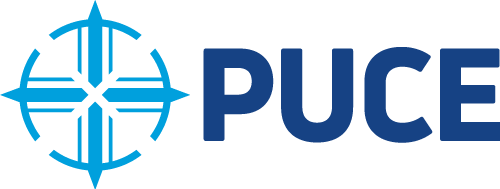Digital museums as pedagogical mediators in the pandemic crisis
| dc.career | Psicología | es |
| dc.category.author | principal | es |
| dc.contributor.author | Ramos Galarza, Carlos Alberto | |
| dc.contributor.corresponding | Ramos Galarza, Carlos Alberto | es |
| dc.country | Ecuador | es |
| dc.date.accessioned | 2023-11-04T21:50:30Z | |
| dc.date.available | 2023-11-04T21:50:30Z | |
| dc.date.issued | 2021 | |
| dc.dedication.author | TC | es |
| dc.description.abstract | As a result of social isolation due to the COVID-19 pandemic, museums around the world have closed their physical doors, but some of them have opened digital windows to be able to visit them through virtual tours. Through them, interactive and sensory experiences are created developing educational and training spaces, which constitute pedagogical mediators that help teachers make their virtual classes more innovative, creating the interest of their students. This article describes the interactive museums as pedagogical mediators that propose a fusion of knowledge and new experiences, which transport the student to a cultural environment fostering the interest of interacting, knowing and visiting museums;in this way they can renew and create new interactive and innovative experiences. Through interactive museums, it is intended to promote a different learning dynamic, and at the same time improve the student’s disposition to receive new knowledge. This proposal contributes to the teaching-learning process with the use of innovative, interactive teaching resources that are at the same time consistent with the current environment in which children grow up. It is relevant to be able to encourage teachers to apply new educational strategies supported by technology, and thereby enrich their teaching management, achieve better teaching results with their students and seek other interrelationships. The study is also consistent and timely with current times, as teachers and students continue to interact in a virtual mode. The study delves into interactive museums and investigates the type of digital resources that can support the teaching-learning process in the area of Sciences. These ideas are intended to contribute to the design of innovative teaching resources that are based on the experiences of virtual visits to interactive museums, through which it is possible to take advantage of all the advantages and benefits they offer. © 2021, Springer Nature Switzerland AG. | es |
| dc.faculty | Psicología | es |
| dc.id.author | 1715766034 | es |
| dc.id.type | 1 | es |
| dc.identifier.issn | 1865-0929 | |
| dc.identifier.uri | https://pesquisa.bvsalud.org/global-literature-on-novel-coronavirus-2019-ncov/resource/pt/covidwho-1355936 | es |
| dc.identifier.uri | https://repositorio.puce.edu.ec/handle/123456789/6343 | |
| dc.indexed.database | Other | es |
| dc.list.authors | Palacios, D., Jadán-Guerrero, J., Ramos, C. | es |
| dc.magazine.pageRange | 122-131 | es |
| dc.magazine.title | 23rd International Conference on Human-Computer Interaction | es |
| dc.magazine.volumeChapter | 1421 | es |
| dc.rights | OpenAccess | es |
| dc.state | published | es |
| dc.subject | Museos | es |
| dc.subject | Innovación tecnológica | es |
| dc.subject | Museos interactivos | es |
| dc.subject | COVID-19 | es |
| dc.title | Digital museums as pedagogical mediators in the pandemic crisis | es |
Files
License bundle
1 - 1 of 1
